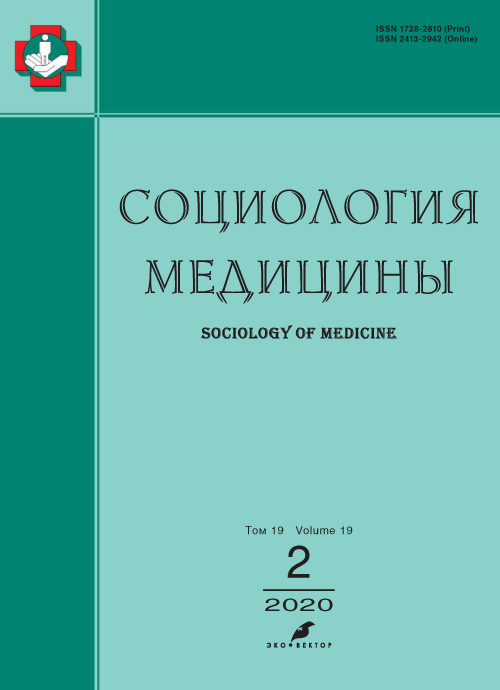Этические основы медицинской профессии: аксиологический анализ
- Авторы: Меттини Э.1
-
Учреждения:
- ФГАОУ ВО РНИМУ им. Н.И. Пирогова Минздрава России
- Выпуск: Том 19, № 2 (2020)
- Страницы: 104-108
- Раздел: Статьи
- URL: https://rjsocmed.com/1728-2810/article/view/71494
- DOI: https://doi.org/10.17816/2020-19-2-104-108
- ID: 71494
Цитировать
Полный текст
Аннотация
В статье рассматривается вопрос о возможном применении аксиологического подхода в медицине, профессии, в значительной степени основанной на этике. Указывается на то, как такой подход может быть использован, особенно когда речь идет об умирании человека, которое является, по мнению автора, важным экзистенциальным моментом как для врача, так и для умирающего. Опираясь на религиозные тексты античных авторов, а также на труды современных философов, автор статьи старается раскрыть глубочайший смысл и неоднозначное отношение к таким процессам, как умирание и смерть человека, изучая их с лингвистической, аксиологической (ценностной) точки зрения, уделяя особое внимание «состраданию», а также событийности такого явления как физического, но не духовного исчезновения человека из мира сего. Таким образом, подчеркивая то, что смерть и умирание являются событийными феноменами в жизни человека, автор предлагает применять аксиологический подход во взаимоотношениях врачей с пациентами, особенно с неизлечимыми, проводить глубокий анализ их жизни, избегая при этом убеждения, при котором смерть может представиться им как наказание за поведение во время пребывания на земле. В заключении статьи автор призывает преодолеть то, что французский философ П.М. Фуко называл дискурсом клиники, когда медицина, особенно после Великой французской революции, начала смотреть на больного как на будущий труп, а не как на субъект исцеления врачами, которые должны исключительно выполнять свои должностные функции без всякого превращения их в чиновников
Ключевые слова
Полный текст
Об авторах
Эмилиано Меттини
ФГАОУ ВО РНИМУ им. Н.И. Пирогова Минздрава России
Автор, ответственный за переписку.
Email: mettini_e@rsmu.ru
ORCID iD: 0000-0002-3051-9730
SPIN-код: 5521-9267
Scopus Author ID: 56298242400
магистр философии, заведующий кафедрой гуманитарных наук
Россия, 117997, г. Москва, ул. Островитянова, д. 1Список литературы
- Гумина М.А. Словарь-справочник по социальной работе. Санкт-Петербург: Питер, 2008. 396 с.
- Дамаскин И. Точное изложение православной веры в 4-х кн. Москва: Издательство Сретенского монастыря, 2003. 135 с.
- sidlife.ru [интернет]. Противоречия ценности жизни в современной биомедицинской этике [дата обращения 03.01.2021]. Доступ по ссылке: http://sidlife.ru/bioetika/obshchie-problemy-bioetiki/102-protivorechiya-tsennosti-zhizni-v-sovremennoj-biomeditsinskoj-etike
- Плеухова Е.А., Сулемайнова Д.Д. Психолингвистический анализ концепта «смерть», вербализированного в произведениях Ф.Г. Лорки и Д.М. Синжа // Вестник ЮУрГУ. Серия: Лингвистика. 2007. № 1. C. 23–25.
- Всемирная организация здравоохранения. Устав (конституция) всемирной организации здравоохранения. Преамбула.
- Файзова Г.И. Страх смерти как мотивация к жизни // Вестник Башкирского университета. 2008. Т. 13, № 4. С. 1053–1054.
- Фуко П.М. Рождение клиники: Археология врачебного взгляда. Москва: Смысл, 1998. 310 с.
Дополнительные файлы







